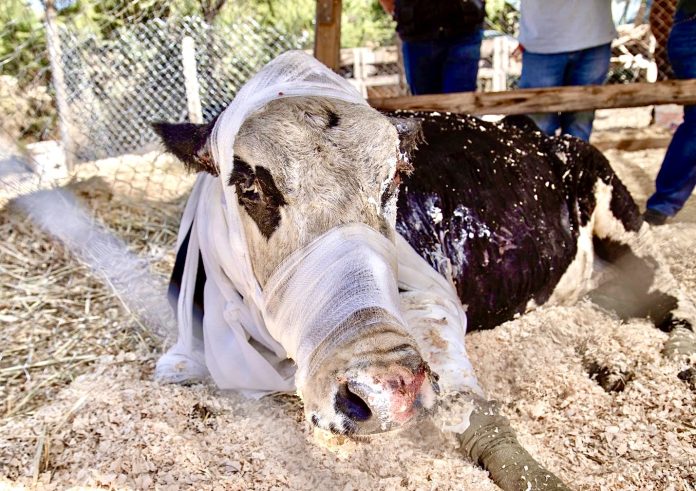In the fire-ravaged city of Viña del Mar, Chile, a temporary veterinary facility has been established within a local school to provide crucial care to animals affected by the wildfires. Humane Society International (HSI) has deployed a dedicated disaster relief team to offer aid to animals grappling with distressing injuries.
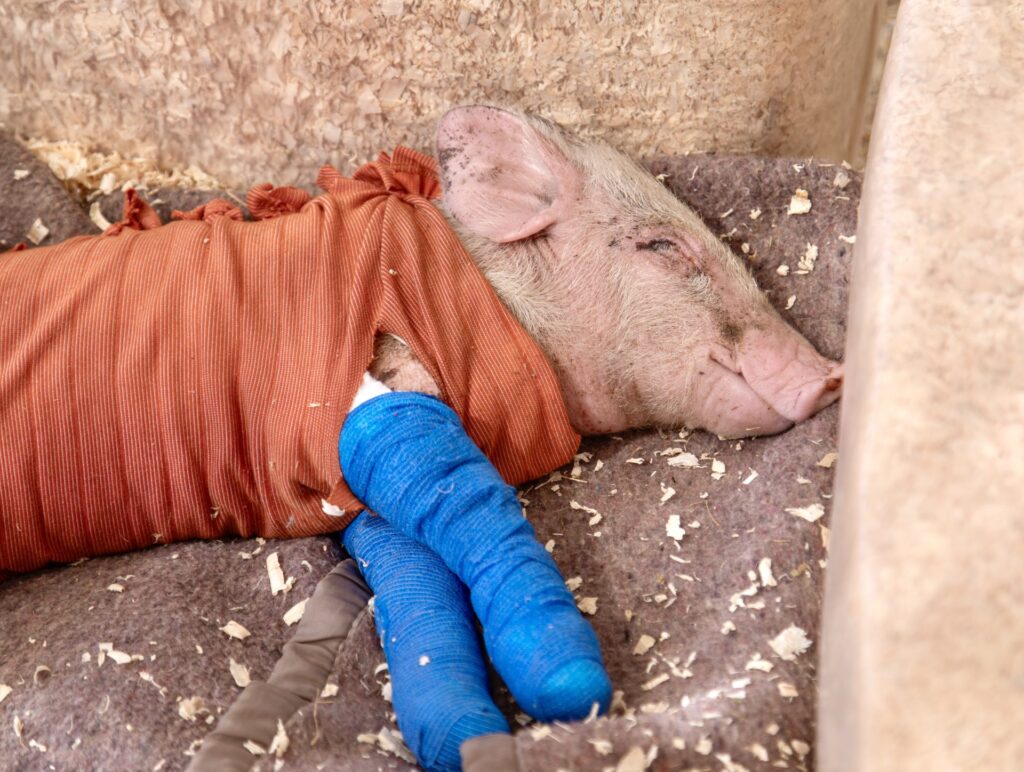
Amidst the aftermath of Chile’s devastating wildfires, animals have endured harrowing injuries, from painful burns on their paws and bodies to respiratory distress caused by smoke inhalation. Many suffer from infected eyes due to exposure to falling ash and debris. Additionally, dehydration and malnutrition plague animals who spent days separated from their families, fending for themselves amidst the chaos.
Responding to this urgent need, Humane Society International (HSI) swiftly mobilized a dedicated disaster relief team. Operating from a makeshift hospital established in a local school, they have already treated approximately 150 animals. The establishment of this facility coincided with the onset of the wildfires, providing a vital lifeline for injured and distressed creatures.
At the request of local authorities in Viña del Mar, HSI’s disaster relief efforts have extended beyond medical treatment. Their team will embark on search and rescue missions in remote areas, where they anticipate encountering more animals in need of urgent care and assistance.
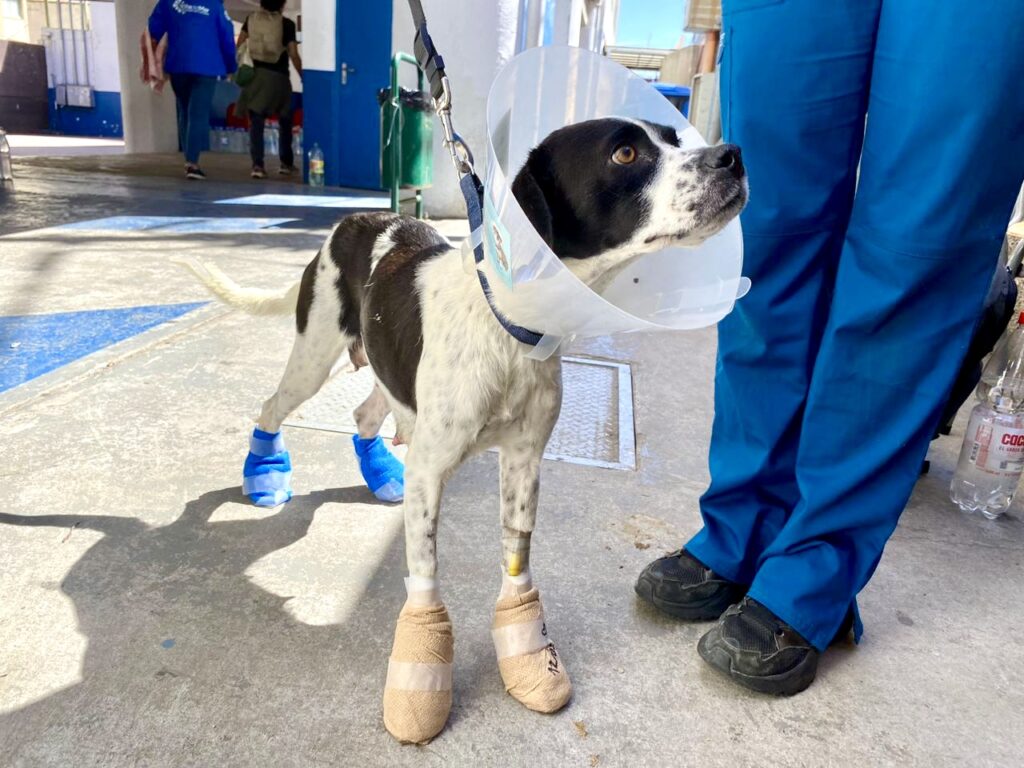
“The majority of dog and cat casualties arriving at the field hospital are presenting with painful skin burns, respiratory issues, and various ailments resulting from direct exposure to the fires or burnt materials,” explained Daniela Sanchez, HSI’s Chile country director and a resident of the affected area. “These animals have endured a truly traumatic experience, exacerbated by their separation from the security and familiarity of their families. Consequently, we’re not only addressing their physical injuries but also providing treatent for shock, dehydration, and malnutrition.”

“Each day, we witness the heart-wrenching sight of distraught locals arriving at the hospital, desperately seeking their beloved animal companions, clinging to hope for a reunion,” continued Sanchez. “Our team is dedicated to facilitating these joyous reunions, striving to bring solace amidst the devastation. Despite the profound impact of this fire, we aim to restore a sense of comfort and companionship by reuniting people with their cherished pets, providing a source of mutual support as they navigate through the trauma together.”

Felipe Marquez, HSI’s Latin America disaster response program manager, brings a wealth of experience in responding to numerous disasters. He emphasizes the critical importance of climate change-related disaster preparedness, citing the escalating frequency and intensity of such events. Marquez underscores the interconnectedness between the welfare of people and animals, advocating for proactive measures to mitigate the impact of disasters on both communities.

The United Nations Environment Program warns that wildfires are projected to surge by up to 14% by 2030 and a staggering 50% by 2100. This alarming trend is attributed to the combined effects of climate change and land use alterations, which contribute to “hotter, drier, and longer fire seasons.” As temperatures rise and precipitation patterns shift, ecosystems become more susceptible to ignition, exacerbating the frequency and severity of wildfires globally. Urgent action is needed to address these interconnected environmental challenges and mitigate their devastating consequences on communities, wildlife, and ecosystems.
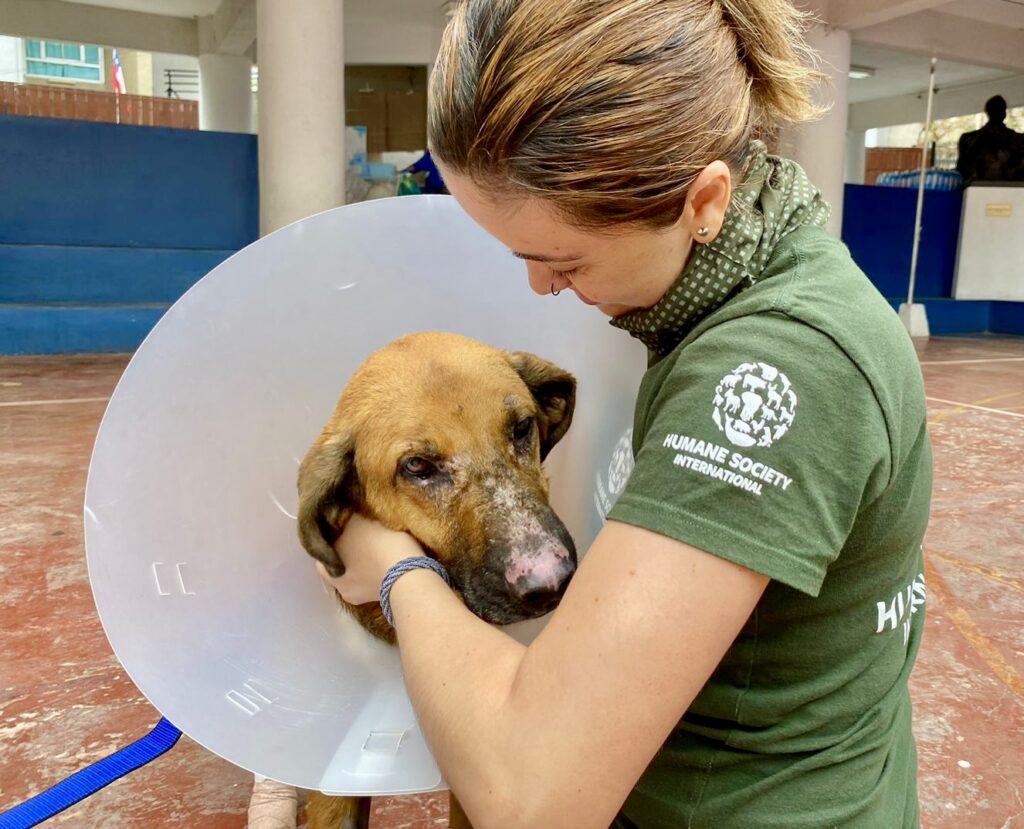
“Millions of individuals, both human and animal, are grappling with the devastating consequences of climate change-exacerbated disasters, including those here in Viña del Mar,” emphasized Marquez. “As these events become increasingly frequent, organizations like HSI are compelled to prioritize proactive measures, assisting communities and local authorities in enhancing their disaster preparedness efforts. Currently, our primary focus in Chile is on providing essential aid to animal casualties, including distributing food, water, and veterinary supplies. Additionally, our teams are actively engaged in search and rescue operations to reach animals still in need of assistance.”
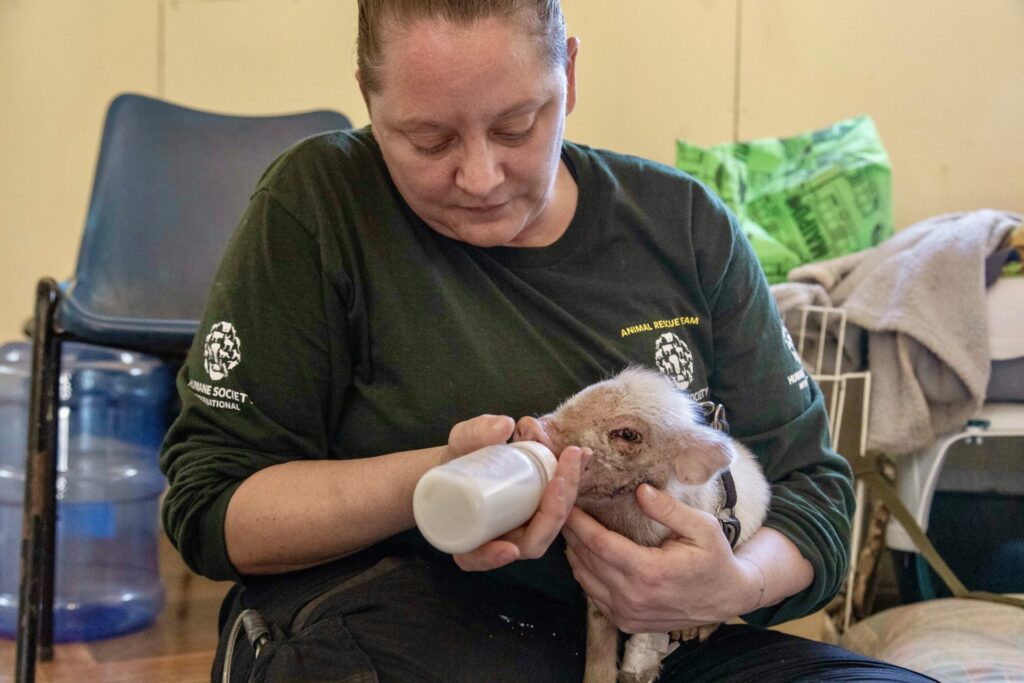
“We’ve witnessed firsthand in our field operations responding to earthquakes, wildfires, and floods worldwide that injured or sick animals have a remarkable resilience, often surviving for some time by scavenging for minimal food and water,” Marquez explained. “However, without timely treatment, they remain vulnerable to succumbing to their injuries and infections. Therefore, our priority is to reach as many of these animals as possible and provide them with the necessary care and attention they need by bringing them back to the hospital for proper treatment.”

HSI’s disaster relief team comprises members from diverse backgrounds, hailing from Chile, Colombia, Costa Rica, Mexico, and the United States. With years of collective experience in animal search and rescue operations, the team has been deployed to various disaster-stricken regions worldwide. Notable missions include their involvement in Australia’s devastating wildfires in 2020 and their response to the earthquakes in Türkiye last year. Their expertise and dedication underscore their commitment to providing essential aid and support to animals in crisis situations across the globe.
